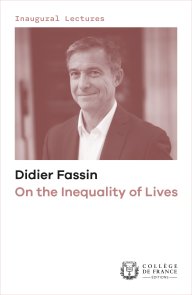
Type de contenu
Publication
On the Inequality of Lives
Éditions du Collège de France
Édition numérique
Éditions du Collège de France
Édition numérique







